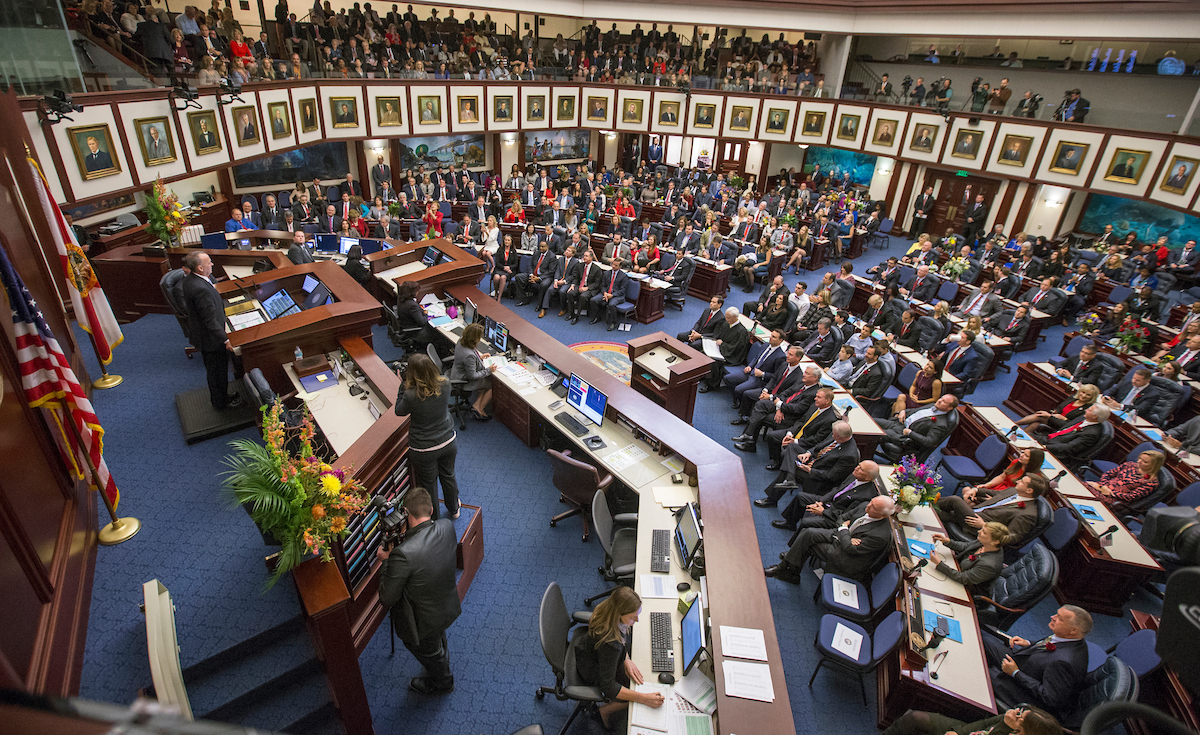
Once the Florida Legislature kicks off its 60-day Session March 7, legislators are expected to pass, or kill, dozens of measures dealing with everything from abortion to gambling and the environment.
So far, more than 2,000 bills have been filed, but in the end, legislators usually pass fewer than 300 pieces of legislation each year.
Here’s a look at some of the top issues this Session:
DEATH PENALTY: Florida legislators are expected to quickly pass a measure that would require a unanimous jury recommendation before the death penalty can be imposed. Last year, the state Supreme Court declared a new law requiring a 10-2 jury vote to impose the death penalty unconstitutional.
MEDICAL MARIJUANA: Voters last November overwhelmingly approved Amendment 2, which allows higher-strength marijuana to be used for a wider list of medical ailments than had been allowed under state law. Legislators will consider bills to implement the amendment, including possibly expanding who can grow and sell medical marijuana.
GUNS: There are about two dozen gun-related bills that already have been filed and the vast majority would expand gun rights so they can be carried in places that they are now not allowed including university campuses and non-secure areas of airports. Democrats have proposed more restrictions, but they have virtually no chance of passing.
GAMBLING: Top legislative leaders say they would like to come up with a comprehensive overhaul of gambling laws. But so far, the House and Senate are divided on what should be done.
The Senate is considering a bill that would allow slot machines at dog and horse tracks in eight counties outside South Florida. The Senate gambling bill would also allow the Seminole Tribe to offer craps and roulette at its casinos.
The House version would allow the Seminoles to keep blackjack and slot machines at its casinos for 20 years. But it would not allow gambling to expand to other parts of the state.
WATER: Senate President Joe Negron wants to borrow up to $1.2 billion to acquire 60,000 acres of land and build a reservoir south of Lake Okeechobee to reduce discharges to the St. Lucie and Caloosahatchee estuaries that have been blamed for toxic algae blooms.
JUDICIAL TERM LIMITS: House Speaker Richard Corcoran wants to impose a 12-year term limit on Supreme Court justices and appeals court judges. The House is backing a constitutional amendment for the 2018 ballot that would ask voters to make the change. But it’s unclear if the Senate will consider the proposal.
BUDGET: Florida legislators are required to annually pass a new budget. Gov. Rick Scott has recommended an $83.5 billion budget that includes money for tax cuts, steep reductions for hospitals and uses local tax dollars to boost school spending.
House Republicans are opposed to Scott’s use of local property taxes and they are expected to call for large budget cuts while also increasing spending on education. Senate President Joe Negron wants to eliminate a tax break for the insurance industry and use the money to cut taxes charged on cellphone service and cable television. Negron also wants to boost spending on universities and colleges.
EDUCATION: Legislators are considering several bills dealing with schools, including one that would require elementary schools to set aside 20 minutes each day for “free-play recess.” Another bill would allow high school students to earn foreign language credits if they take courses in computer coding. Legislators are also considering changes to Florida’s high-stakes standardized tests, including pushing back the testing date to the end of the school year.
HIGHER EDUCATION: Negron has called for an overhaul of the state’s colleges and universities that requires the state to cover 100 percent of tuition costs for top performing high school students who attend a university or college. The Senate plan also calls for boosting efforts to recruit and retain university faculty.
ABORTION: Several abortion bills have been filed including one that would make it easier for women to sue physicians for physical or emotional injuries stemming from abortions.
ECONOMIC INCENTIVES: Corcoran wants to scuttle the state’s economic development agency and trim back spending at the state’s tourism marketing outfit. The move is strongly opposed by Gov. Scott who says they help the economy, but Corcoran has criticized the efforts as a form of “corporate welfare.”
HEALTH CARE: Legislators are considering several proposals that would eliminate limits on certain types of health care facilities. They may also overhaul the state worker health insurance program and expand the use of direct primary care agreements between physicians and patients.
Republished with permission of The Associated Press.



